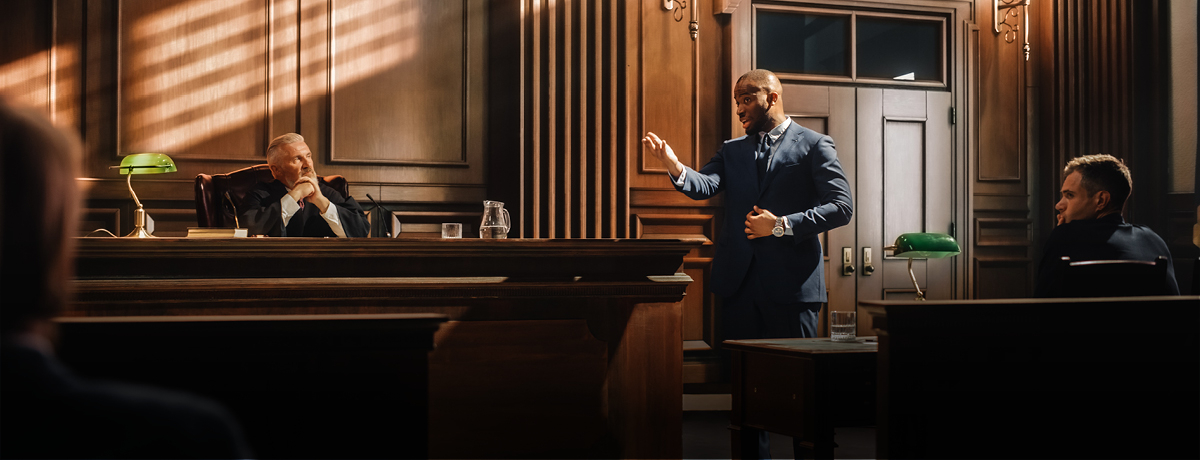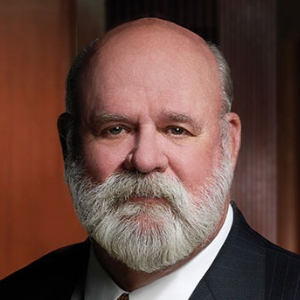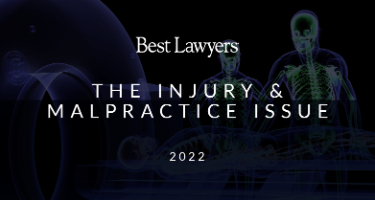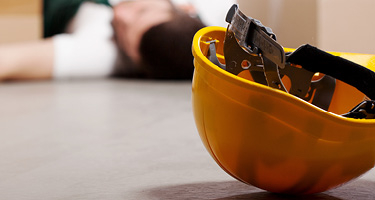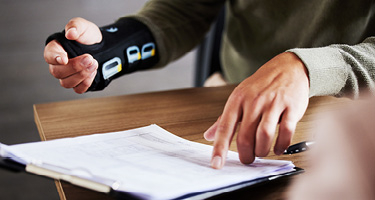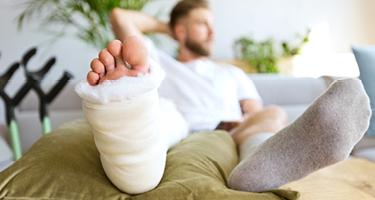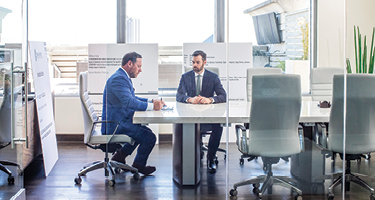ACROSS MORE THAN five decades of practice, I’ve learned some helpful trial tips and strategies, many of them firsthand in the courtroom, that have proven important at one time or another. What follows is by no means an exhaustive list but rather a collection of simple suggestions you can put to work immediately.
For anyone preparing to step into the courtroom, it’s often best to hire a lawyer who has the experience and preparation habits to put these strategies into practice.
Preparation, Preparation, Preparation
It’s the key to being successful at trial. Intensive prep—working full days and weekends—must start well in advance of the trial, far enough out that you’ll be certain to be ready.
The time you need to properly prepare a case for trial obviously depends on the size and nature of the case—the number of witnesses, the complexity of the subject matter, the anticipated legal issues at hand and plenty more—but it’s always better to start early than to leave it for the last minute. Unexpected things will always come up on the eve of trial that will eat into the amount of time you thought you had. Get ahead of the curve by starting early.
If you’re preparing to retry a case, keep in mind that you don’t remember it as well as you think you do. Often, months or years have passed since the original trial. You’ve forgotten more than you realize. My tip: Start your prep work early and plan to attack it every bit as thoroughly as you did the first time.
How the Jury Sees You, Your Client, the Witnesses and Your Case
The jury needs to like and respect both you and your client. Constantly fussing with the judge will usually hurt your case. Even if you’re winning objections, the jury might not understand and may not like it. Be sure you really need that objection before you make it.
Make sure as well that your client and witnesses cannot be impeached on veracity. I do not remember ever seeing a lawyer win a trial in which his or her witnesses were perceived as untruthful. In addition, all your witnesses and your client must be aware of the motions in limine so there’s no wrangling in front of the jury about inappropriate testimony.
Screen your plaintiffs. Don’t take on a client you do not believe and don’t like, even if it’s the judge’s nephew. Jurors can sense when you’re not onboard with your client, and it never serves them or you well.
Do not gild the lily. The facts and damages in your case are what they are. Use them to put the case’s best foot forward without overstating it. A lot of drama over a small injury generally doesn’t work; your approach needs to be commensurate with the specific injuries.
Finally, a lesson learned the hard way: When making your jury argument, I recommend always fully opening. If not, defense counsel may elect not to argue, in which case the judge has the option to deny your closing argument, at least in Texas.
Jury Selection Tips
The key to effective voir dire is to get jury panel talking. For them to talk, they must like you and trust you enough to share. If you begin a voir dire by telling the panel you’re trying to get a “fair jury” and then work hard to disqualify a potential defendant juror, the rest of the panel will see that, and your voir dire might not go as well as you had hoped.
It can be better to tell the jury that it’s necessary to ask questions to see if they possess any relevant biases and explaining that we all have biases. For example, my grandmother always fed me castor oil; therefore, I’m biased against castor oil. Be careful of stereotyping panel members. In his day, Clarence Darrow was fond of saying, “For a lawyer whose client is in the dock, it would be malpractice for that lawyer to strike an Irishman.” As great a lawyer as he was, I think the process of jury selection has improved considerably since Mr. Darrow’s day.
Handling Witnesses
All depositions ought to be videotaped. Sometimes that’s impractical for one reason or another, but if you can’t tape them all, be sure at least to tape all depositions of experts, in particular those of physicians and engineers. You never know when an expert will try to change his or her opinion—or get hit by the proverbial bus. Neither is welcome from the lawyer’s standpoint. A taped deposition gives you options.
Some mistakes to avoid: Don’t get too aggressive with live witnesses from the get-go; start out pleasantly with all of them. Give the jurors a chance to get to know the witness. Let the witness throw rocks first. Try not to start a cross-examination angry either, even if the witness was an ass at the deposition.
If a witness was aggressive at the deposition, it helps to use part of his or her video deposition when questioning other witnesses before the aggressive witness takes the stand. This will give you more leeway with the jury in dealing with the potentially problematic witness.
Before impeaching an adverse expert, consider first whether you need to do so. Impeachment is not the only useful and productive purpose of cross-examination. A well-planned and executed cross-examination can potentially accomplish far more than simply discrediting the testimony of the defendant’s expert—and the defense.
Occasionally you can get the expert to modify or reverse his or her opinions wholesale. Artful, precise questioning can often extract concessions and favorable collateral opinions from the opponent’s expert. You may also establish that, given the particular facts and circumstances of your case, the expert’s opinions aren’t harmful. In this instance, there’s no need to impeach a witness who has been rendered, at most, irrelevant. You can save the thunder for another occasion, and the court and jury will appreciate your giving back the time.
Courtroom Tips
Be sure your clients and witnesses are dressed appropriately for the occasion. This doesn’t necessarily mean they must wear a suit and tie, but it does mean that very casual attire and loud jewelry should be left at home.
Make sure you take the time to lay the proper predicate for your demonstrative aids and there are no other admissibility problems. Nothing derails an otherwise effective witness examination like having to duke it out with opposing counsel in front of the jury over the use of demonstrative aids or admissibility of other evidence. Have audiovisual technical support professionals visit the courtroom pretrial to ensure that everything you need works properly and to check for practical concerns like making sure the demonstrative aid fits behind the rail of the courtroom.
Be yourself in the courtroom. Juries don’t like split personalities from either lawyers or witnesses. When dealing with your firm’s employees in the courtroom and around the courthouse, treat them with the same kindness as you would if they were jurors. Should a juror walk by you in the hall while you chew out an employee, the jury will sour quickly.
Juror comfort goes a long way. Use the time you need for argument or witness examinations, but consider the jury’s feelings in terms of the length of those aspects of the trial. Jurors who need a break are, at minimum, not fully listening to your case; at worst, they’re mad at you about it. If the court asks how much longer you need with a witness, give a time you can meet and do not exceed it.
If the court will allow, agree with the other side to provide the jury with sodas and water. It keeps jurors alert and happier. Splitting the cost of their lunches with your opponent helps, too.
Conclusion
Preparation and critical thinking can help you avoid many land mines during a trial. Be yourself, believe in your case and your client, and the jury should come along with you.
Frank Branson has been trying personal injury lawsuits since 1969. He has been fortunate to receive a number of honors for his ethics, professionalism and capability in the courtroom, resulting in recoveries for many deserving clients. He has also been President of the local ABOTA chapter and been inducted into the International Academy of Trial Lawyers and the International Society of Barristers. His firm recently tried a product liability lawsuit where the jury awarded $242 million, which was reduced by the Court of Appeals to $200 million, and settled to the satisfaction of all parties while pending in the Supreme Court of Texas. He and his wife, Debbie, have practiced law together for 40 years and still very much enjoy trying lawsuits and representing clients in the courtroom.
